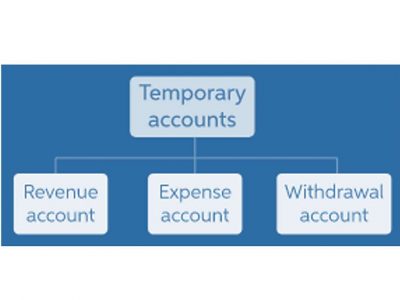Content
- How to Run a Successful Electrical Business
- What is the difference between a bookkeeper and an accountant?
- Looking to Make Proper Decisions About Your Business?
- Bookkeeping vs Accounting
- The Types of Education for a Tax Analyst
- Outsource Your Company’s Financial Services to Bookkeepers and Accountants
- What does a bookkeeper do vs. an accountant?
- Bookkeeper vs. accountant: What’s the difference?

By outsourcing your requirements to us, you can save about 50% of your costs and concentrate more on your core competencies. Every step in the accounting cycle must be performed at the end of each month and year. Without an accountant or bookkeeper, it’s up to the business owner to accomplish them on their own. A bookkeeper can manage most of these tasks, but an accountant takes them one step further by using the generated financial statements to offer valuable financial advice. The NACPB offers credentials to bookkeepers who pass tests for small business accounting, small business financial management, bookkeeping and payroll. It also offers a payroll certification, which requires additional education.
FreshBooks is unique accounting software aimed at helping small businesses simplify their accounting and bookkeeping services for efficient running of their operations in a secure, fast and easy way. Whether a bookkeeper or an accountant is performing the work, properly managing financial records is critically important for limiting the risk of poor investments or stolen https://www.bookstime.com/ money. Bookkeepers are generally less knowledgeable of asset management concepts, such as compliance, tax laws, and investment strategies, so trained accountants are in high demand. Now is as good a time as any to earn a Master of Accountancy, because graduates may be better positioned to earn specialized certifications and bolster their professional competence.
- In contrast, accountants must summarise, interpret, and communicate the latest financial transactions classified in the ledger account.
- The following are key bookkeeping vs accounting differences and what each actually means, including software that makes both operations efficient and possible.
- If you’re looking for profit and loss, cash flow, balance sheets and business metrics all in the same tool, look no further.
- Despite all this, auditing is a completely different process when compared to bookkeeping.
- As a bookkeeper, your attention to detail must be almost preternatural.
On top of that, accountants must pass their state licensing exam to become certified. The exam lasts 14 hours, and half the test takers fail a section on the first try. To keep their license, CPAs need 40 hours of added professional education every year. A CPA makes 10 to 15 percent higher income than an accountant who is not certified. In North Carolina, for example, you need a bachelor’s degree with at least 30 hours of accounting-related courses or 20 hours of graduate accounting courses. A native Salesforce accounting platform, Accounting Seed, provides a full 360-degree view of your business’ performance to help you and your accounting team make the best decisions possible. Our platform can be customized to work with any system you have through a reliable connection.
How to Run a Successful Electrical Business
From ensuring tax returns are filed correctly to forecasting sales accurately, there are so many reasons for your small business to practice healthy bookkeeping and accounting. There’s a place for both bookkeeping and accounting in your small business, and as a small business owner, you’ll likely be called upon to be both at one time or another. While accounting software certainly makes the bookkeeping process a lot easier, it requires a different set of skills and knowledge to handle accounting for your business. The initial classifications and recording of a company’s transactions like bills paid, daily sales and payroll or another expenditure fall to a bookkeeper. There is, however, no line in the accounting processes where a bookkeeper’s role should end and that of the accountant to begin. Accounting processes may call for an accountant to correlate and indemnify the books or records presented by a bookkeeper. If you’re not ready to hire a full-time bookkeeper or accountant, you still have a few options.
- Some companies have grown to a position where a CFO is necessary to solidify long-term strategies.
- The IRS lays out which business transactions require supporting documents on their website.
- Put simply, an accountant may perform some of the same tasks as a bookkeeper, but a bookkeeper would not be qualified to handle all of the work responsibilities of an accountant.
- There’s also a blurring of roles, with some accountants providing bookkeeping services and some bookkeepers giving strategic business advice.
It simply records unprocessed information regarding the money coming in and going out as well as revenue and expenses. Accountants perform tasks related to cost allocation following accounting principles and legislation. They are also in charge of drafting and managing budgets based on input from the finance managers. Students also gain firsthand experience with accounting systems, data transformation, SQL and other industry software that is vital to digital organizations’ long-term success. For bookkeepers, formal training isn’t required, but bookkeeping requires more than simply inputting numbers into spreadsheets. The best bookkeepers have strong analytical abilities, are great communicators, are organized and accurate, and know the bookkeeping basics.
Understanding the difference is crucial to submitting appropriate documentation and finding accurate data. In general, bookkeeping is where you or a professional gathers financial data and sorts them into the right places. Accountants will take it one step further and help you analyze them. To a layperson, bookkeeping and accounting may appear as very similar professions without many differences. In both instances, basic accounting is necessary knowledge to venture into either bookkeeping or accounting.
What is the difference between a bookkeeper and an accountant?
Bookkeepers working for smaller businesses might do some basic accounting duties. There’s often overlap, and the duties may change a lot from one business to another.

A key difference between accounting and bookkeeping lies in the skill requirement for both. Sure, bookkeepers and accountants both need to be number-loving and data-driven, but there’s more to it than that. Let’s dive into the differences between bookkeeping vs accounting software to examine what you really need for the best financial management. Quite often, the terms bookkeeping and accounting are used interchangeably. But these are different concepts, reflected clearly in modern technology. Accountants may also need to compute taxes, prepare them, and make sure that their employers pay their taxes correctly. For professionals who are good with numbers and proficient at thinking analytically, this job can be quite rewarding.
Looking to Make Proper Decisions About Your Business?
To get automated profit and loss, cash flow statements, and balance sheets, use FlightPath by Baremetrics. It is the day-to-day counterpart of the big idea work done under accounting. Employment of accountants and auditors is expected to grow 7% from 2020 to 2030, adding nearly 100,000 new jobs during that period, according to data from the U.S. Individuals entering the profession can pursue a variety of roles, including financial or managerial accountants, internal or external auditors, or government accountants.
There is a difference between an accountant and a certified public accountant . Although both can prepare your tax returns, a CPA is more knowledgeable about tax codes and can represent you if you get audited by the IRS. If you’re looking for profit and loss, cash flow, balance sheets and business metrics all in the same tool, look no further. Sign up for FlightPath by Baremetrics and start financial modeling now.
Bookkeeping vs Accounting
He or she will make sure employees get paid, fill out the right forms, file all your company’s paperwork, submit invoices, and pay the bills as well as track all your expenses. To make this possible, accountants thoroughly analyze and interpret financial information to create advanced reports on how the business is performing currently and what can be expected further. Deferred RevenuesDeferred Revenue, also known as Unearned Income, is the advance payment that a Company receives for goods or services that are to be provided in the future. The examples include subscription services & advance premium received by the Insurance Companies for prepaid Insurance policies etc.

Accounting, on the other hand, focuses on analyzing those financial records and giving advice based on patterns they notice and a client’s financial goals. On the other hand, an accountant reviews the bookkeeper’s financial records and statements to facilitate analytical interpretations. The accountant has a four-year degree in accounting, which enables him or her to analyze and interpret the bookkeeping data; reflecting a company’s financial health. Without focusing all that much on the overall financial analytics, a bookkeeper maintains as accurate a record as possible. Don’t necessarily need an accounting degree or a financial background like an accountant or CPA. They just know proper financial data entry in order to record the transactions properly. This is more of a clerical role, which is still important because accuracy is critical for accounting and finances.
The Types of Education for a Tax Analyst
You’d pay more for the same service a bookkeeper could do for less and, in the process, underutilize the accountant’s expertise. When put into practice, the concept of accounting is a multiphase process. The first phase of this process is often assigned to bookkeepers, as accounting typically starts when financial information is recorded and organized.
- Similarly, you probably don’t know that there’s a distinction between bookkeeping and accounting.
- Staying on top of your finances is a key part of being a successful small business owner.
- You can learn more about the standards we follow in producing accurate, unbiased content in oureditorial policy.
- Bookkeepers aren’t required to be certified to handle the books for their customers or employer, but licensing is available.
- Bookkeepers and accountants can take those dreaded tasks off of your plate entirely or help you automate some processes so you can focus on areas where you shine.
Download PDF to see the comparison between bookkeeping and accounting. To follow due diligence in following the generally accepted conventions of recording and maintaining books of accounts. To look out for financial data and identify economic transactions for a business. Accountants and bookkeepers both perform basic math operations every day and may also be required to do more advanced calculations when working with taxes and investments. In this video, we follow Ektaa, a tax accountant working for a family-owned accounting firm, as she shares the skills and education needed to be a successful accountant. An accounting professional will help you create a plan; ultimately saving you time and money in the future and reduce your workload.
But when it comes down to recording those expenses and analyzing them, you don’t always have the time or knowledge to do that. Students interested in an accounting career can gain the necessary skills and knowledge to conduct financial analysis and comprehend large datasets through an online Master of Accountancy program. At GrowthForce, we understand that there is no one-size-fits-all solution when it comes to building a successful business. Some companies have grown to a position where a CFO is necessary to solidify long-term strategies. Smaller companies that are just starting out may do well with simple bookkeeping services. The controller ensures that the company’s accounting systems and processes comply with generally accepted accounting principles, help reduce risk and manage cash. Accountants should reconcile every single balance sheet for every account each month, without question.
To choose accounting software, start by considering your budget and the extent of your business’s accounting needs. Bookkeeping, in the traditional sense, has been around as long as there has been commerce – since around 2600 B.C. A bookkeeper’s job is to maintain complete records of all money that has come into and gone out of the business. Bookkeepers record daily transactions in a consistent, easy-to-read way. Accounting takes this information and then collates and visualizes it.
This is because individuals with master’s degrees should have already met the 150-hour study requirement that is necessary to take most accounting certification exams. They are also more likely to have a thorough understanding of the advanced techniques that are used to maintain the finances of larger organizations. Accountants, on the other hand, have a higher educational standard they must meet compared with bookkeepers. This holds especially true for those wishing to become CPAs, which requires a bachelor’s degree in accounting as the minimum level of education. However, many accountants pursue a Master of Accountancy to further open up employment opportunities. Working with an accountant or bookkeeper doesn’t mean losing control of your business.
Can you make 6 figures as a bookkeeper?
To have a 6-figure business, you'll likely need to increase what you charge. You'd think that's an obvious thing to do, but it's surprising how many bookkeepers don't. Plenty of them undervalue their services for various reasons, but for you to reach your business mountaintop, those days must be over.
An accountant can be considered a bookkeeper, but a bookkeeper can’t be an accountant without proper certification. As your company grows, it can be hard to know exactly when you need to bring on a new team member, and exactly which roles, in which order, should be fulfilled. Accounting is more concerned with drafting budgets based on the input of finance management and then making sure they are followed. As your firm grows and evolves, shouldn’t your suite of services?
What does a bookkeeper do vs. an accountant?
Her areas of focus at business.com include business loans, accounting, and retirement benefits. Doing your accounting yourself may be fine when your business is small, but if your business accounting vs bookkeeping is in growth mode, it may be time to bring in someone to help. You could start by contracting with a bookkeeper who balances the books once a month and a CPA who handles your taxes.
Prospective candidates may wonder what accounting is and what an accountant’s responsibilities are. Although it may seem similar to bookkeeping, accounting is far more advanced. Accounting is a scientific discipline that is dedicated to the management of financial information for individuals or businesses. Through their education, accounting professionals learn how to analyze financial statements to find opportunities for organizations to improve their financial standing. They lay the foundation for accountants by recording financial transactions.
Bookkeeper vs. accountant: What’s the difference?
A bookkeeper’s job usually entails entering financial transactions into a database or bookkeeping software. After the data is entered, the bookkeeper may also need to generate reports that can be used by the organization’s administrators or accounting team. This work is a good fit for professionals who are very detail-oriented, work well with computers, and are competent with math. U.S. businesses of every size have some volume of financial information that must be organized and reported to fulfill legal obligations, such as tax requirements. Several professional occupations revolve around recording, reporting, organizing, and analyzing this financial information, namely bookkeepers and accountants.